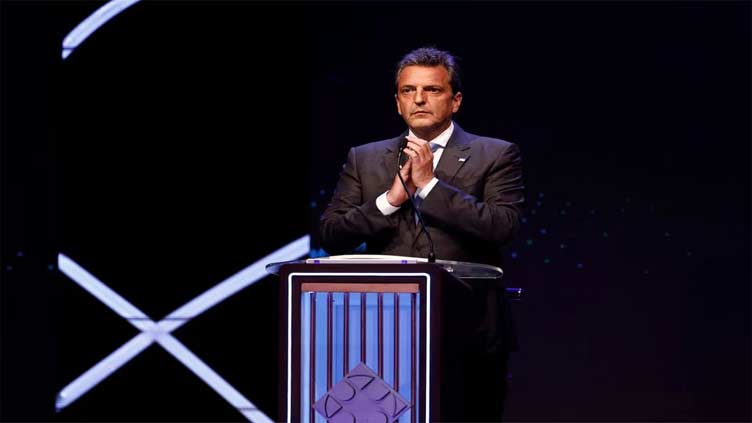Argentina presidential candidates trade barbs in first debate

World
Two mandatory debates have to be held before the October 22 presidential election
BUENOS AIRES (Reuters) - The main candidates for Argentina's presidency clashed in the first debate of the campaign while trading barbs over who is to blame for the latest economic crises and how to end decades of economic malaise.
Under Argentine law, two mandatory debates have to be held before the 22 October presidential election, where Argentine voters will be presented with radically different visions for the future.
With growing skepticism among voters, the debate on economy, education, human rights and "democratic coexistence" took place with a pre-established format and strict rules that allowed little time for candidates to elaborate their points.
The ultra-liberal candidate Javier Milei, who proposes dollarization and is leading the polls, proposed "to reform the state, drastically reduce public spending, cut taxes, simplify the tax system, deregulate the economy, privatize to get rid of the harmful state-owned companies, open the economy and close the central bank".
/cloudfront-us-east-2.images.arcpublishing.com/reuters/F3SQ6LVMWNLX7F2TQSCRJZPEPM.jpg)
Milei told voters that with such reforms in 15 years Argentina "could be reaching standards of living similar to those of Italy or France, if you give me 20, Germany, and if you give me 35, the United States".
Sergio Massa, the ruling party's candidate, apologized to voters for recent economic difficulties but sought to distance himself from the "mistakes" the government made before he became the economy minister.
"I am aware that inflation is a huge problem in Argentina," said Massa.
The order of the presentations was previously drawn by lot.
"We are all crying out for an end to the anguish in which we are living. Nobody in Argentina can stand it any longer," said center-right leader Patricia Bullrich.
"I am coming to eliminate inflation," he added, without elaborating.
On education, all candidates supported public education and on human rights they maintained their differences on the recent history of Argentina.
/cloudfront-us-east-2.images.arcpublishing.com/reuters/LSD3BSJXKZKFVJUEMJUZ73ZSD4.jpg)
The second debate addressing security, work and "human development, housing and environmental protection" will be held next Sunday in Buenos Aires.

